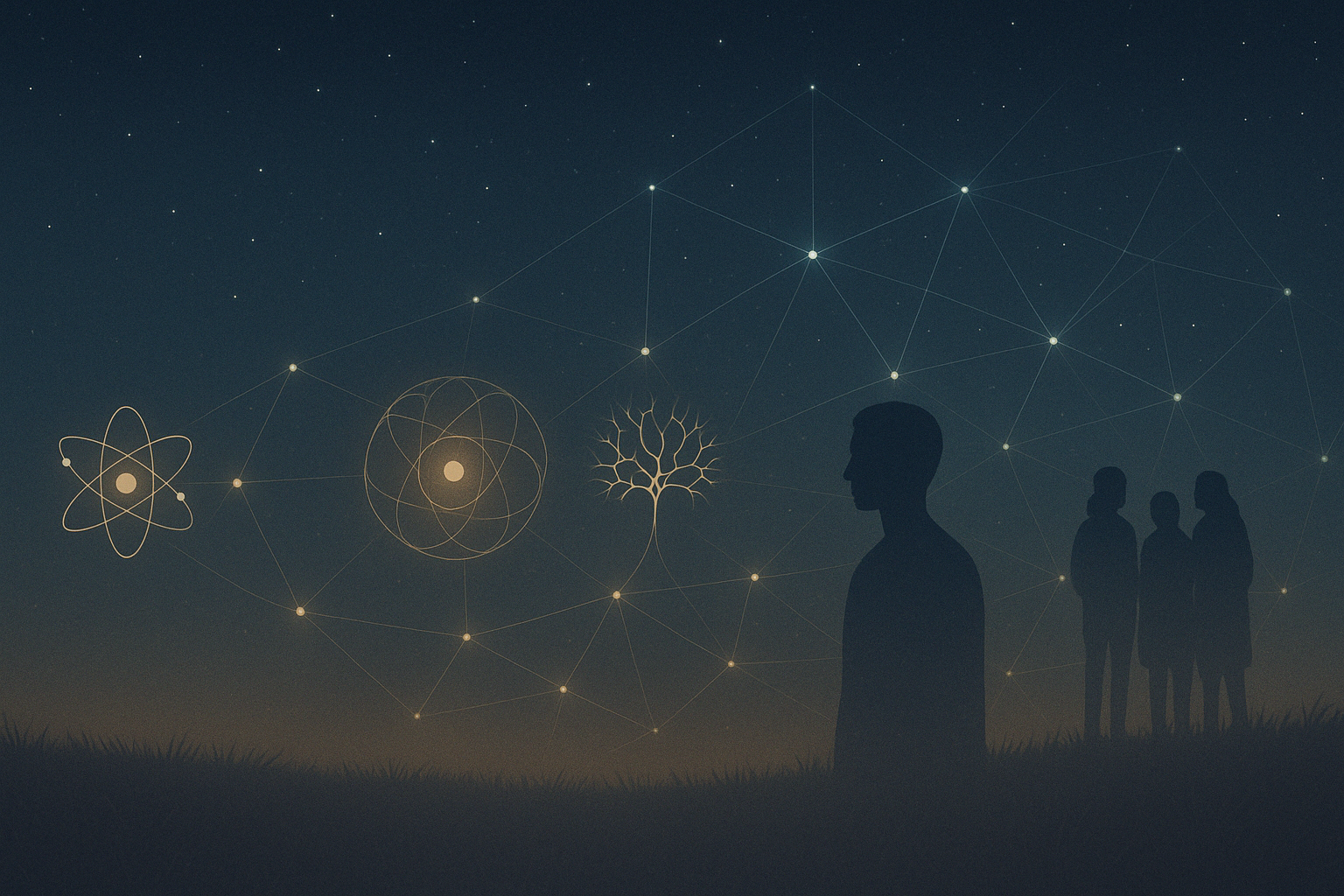Ontology
What is?

Being is not what a thing is alone, but how it exists in relation.
Ontology, in the context of Relatism, is the study of being as inherently relational. It does not begin with isolated entities, but with the networks of relationships that make existence possible. To be is to relate.
Relational Being
Existence is not a solitary property. Things do not exist in a vacuum — their being arises from, and is defined by, their relationships. Whether particles, people, or processes, identity is contextual and dynamic.
Recursive Becoming
Relational being is not static. It is recursive — meaning it builds upon itself over time. A being becomes more complex and coherent through sustained relationships. Recursion enables growth, adaptation, and the emergence of new forms. Each interaction shapes future interactions, and each coherence becomes the context for the next.
This is how life, consciousness, and systems develop: not from isolated leaps, but from layer upon layer of relational becoming.
Time as Relational Change
In Relatism, time is not an independent dimension or an absolute flow — it is a relational construct that arises from change. When relationships shift, we perceive time. Without change, there is no temporal reference.
This view reframes time as a measure of transformation within relational systems. It is not an external backdrop but an emergent property of unfolding interactions.
Meaning and Conceptual Relationality
Even concepts themselves are relational. A word has no meaning apart from its use, its contrast with other words, and its contextual application. Language, thought, and knowledge emerge through symbolic and semantic relationships.
Ideas are not fixed entities but nodes in a web of interpretation, culture, and experience. Their meanings evolve through interaction, usage, and shared understanding.
Contrasts with Classical Ontologies
- Substance Ontology (Aristotle, Descartes): Views being as substance with fixed properties. Relatism views being as contextual expression through relation.
- Idealism (Plato, Hegel): Prioritizes forms or ideas as ultimate reality. Relatism grounds reality in actual interactions, not abstract ideals.
- Existentialism (Sartre, Heidegger): Emphasizes subjective experience and freedom. Relatism includes experience but roots it in shared, recursive relationship.
- Process Philosophy (Whitehead, Deleuze): Sees becoming as central. Relatism aligns closely but emphasizes coherence through recursive relation as foundational.
Implications
- Being is not a static attribute but a dynamic expression of context.
- Ontology cannot be separated from interaction, perception, and mutual influence.
- Time and meaning are relational constructs, not absolutes.
- To understand something fully is to understand its place within a web of relations — across space, time, and interpretation.
This primer introduces a foundational principle of Relatism: existence is not isolated. All being is embedded, emergent, and defined through relation — recursively, coherently, and meaningfully.